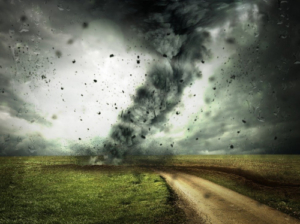Here are 10 important insights you need to know about payments and the US economy during the pandemic. The data comes from recent Bankrate research and the August 2020 Liberty Street Economics report from the Federal Reserve Bank of New York.

- 35% have less savings and 21% of Americans have no emergency savings at all during the pandemic, the lowest in 10 years of polling [Bankrate]
- 54% of consumers lost money on events paid for in advance of the pandemic including short-term home rentals (49%), sporting events (48%), flights (47%), concerts (45%), live theater (43%) and hotels (36%); 59% have given up trying to get refunds [Bankrate]
- 61% of parents say remote learning will impact their finances negatively and 30% expect to spend more on technology, tutoring, meals, etc [Bankrate]
- 33% of credit cardholders did at least one thing that could hurt their credit score since the pandemic including adding to debt (17%), paying a bill late (12%), carrying a balance mistakenly thinking it would help their score (8%), not paying a bill at all (6%), and cancelling a card to improve their credit score (3%) [Bankrate]
- 49% of US households have lower income due to the pandemic and 59% say it will take more than three months to recover including 4% say it will never recover [Bankrate]
- 31 million working or unemployed Americans (27%) have already withdrawn or plan to withdraw from retirement savings to cover COVID-19 costs [Bankrate]
- household debt growth has stalled with credit card debt down $82 billion in Q2 2020 – a decline not seen since 2000 [Fed Reserve NY]
- of CARES Act mortgage payments forbearance on $750 billion in first mortgages, an estimated 7% are affected with an estimated $6 billion in interest payments deferred per month [Fed Reserve NY]
- Q2 delinquencies declined for mortgages, auto loans, and credit cards due to CARES Act of forbearance but the future is cloudy [Fed Reserve NY]
- Q2 mortgage refinancing surged to $846 billion [Fed Reserve NY].
The Federal Reserve Bank of New York provides an important warning in its August 2020 Liberty Street Economics report:
“American households have dialed back consumption and reduced their credit card balances, while forbearances have provided relief to many borrowers who need it. These consumer protections have helped prevent large-scale spikes in delinquency of American household borrowers, while at the same time masking the economic hardship that many households are experiencing following job loss. How households fare going forward will depend on the evolution of the pandemic and labor market, as well as on the extent and nature of future forbearance provisions and other government assistance.”
What lies ahead for the US and world economies however is anyone’s guess.

